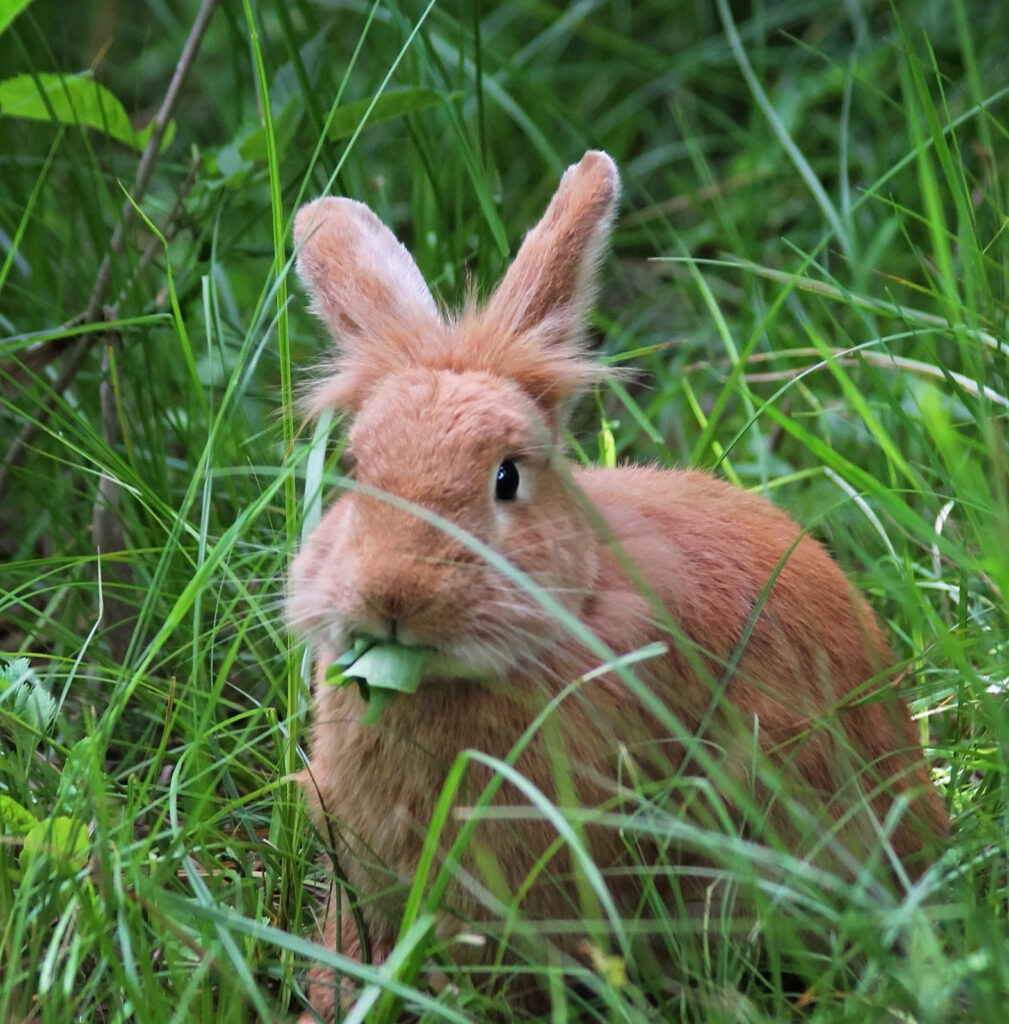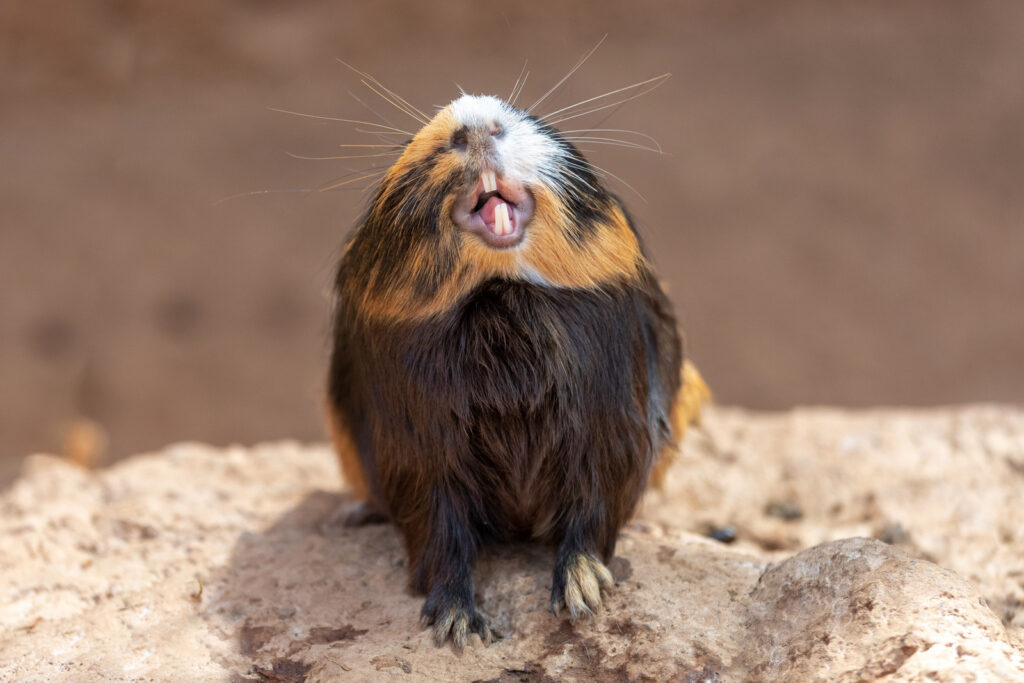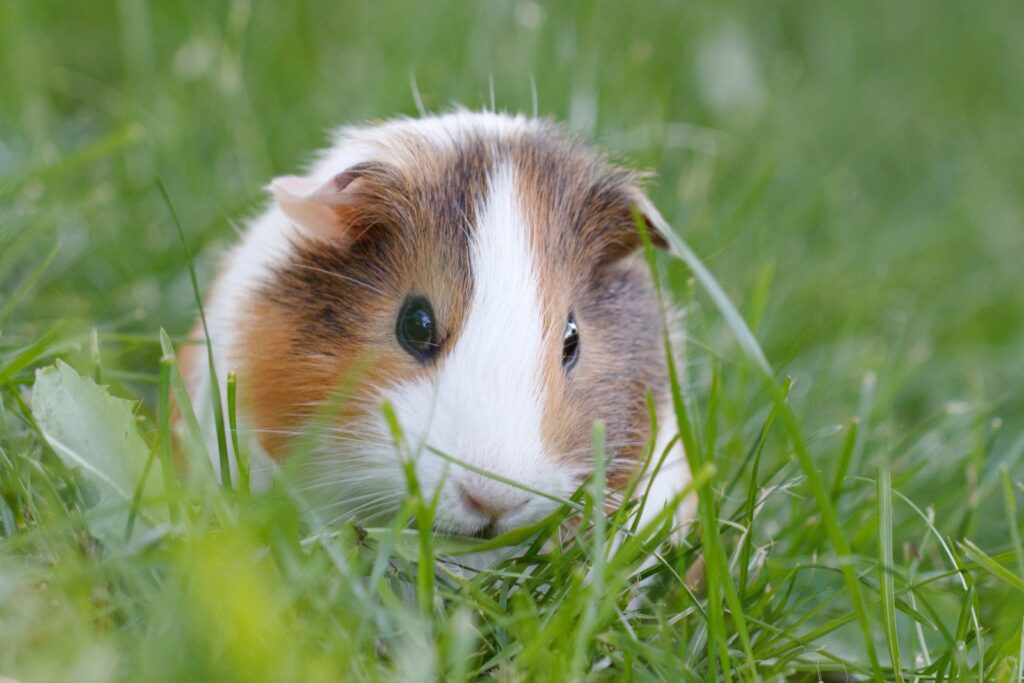…what you need to know!
Rabbit and guinea pig teeth grow continuously, meaning that they need to be constantly ground down. If bunny and pig teeth are not worn down properly, they will continue to grow, and the consequences can be very serious and even fatal.
This article tells you everything you need to know about guinea pig and rabbit teeth and what you can do to look after them properly.

How many teeth does a rabbit have?
Rabbits have a total of 28 gnashers! Most noticeable of these are the four incisors (the long teeth right at the front of the mouth) which are used to grab and slice food. The rest of your bunny’s teeth are at the back of their mouth and are called molars, these teeth are used for chewing and grinding food.
What about peg teeth?
As well as their four main incisors, bunnies also have two peg teeth. These tiny little teeth are hidden directly behind your bunny’s upper incisors- meaning it’s not normally possible to see them. These little teeth are completely normal and rarely cause a problem if they are worn down properly like the rest of your bunny’s teeth.
How many teeth does a guinea pig have?
Pigs only have 20 pearly whites. Like rabbits, they also have four incisors at the front of their mouth (although these are normally less obvious in piggies!) and the rest are molars.
How long should rabbit and guinea pig teeth be?
The upper and lower incisors should never clash- if they do it may be a sign that your pet’s teeth have overgrown. The top and bottom teeth should gently overlap, and your pig or bunny should be able to easily close their mouth without their teeth pushing against each other or getting in the way.
If you think your rabbit or guinea pig’s teeth have overgrown- speak to your vet straight away as without veterinary attention your pet’s teeth will continue to grow, making their dental problem more serious and harder to fix!

What causes guinea pig and rabbit teeth to overgrow?
The ancestors of our bunnies and pigs would have eaten grass all the time, which would have constantly worn their teeth down. Because of this our, they have adapted so that their teeth are always growing.
Constantly growing gnashers mean that bunnies and guineas need plenty to chew on. This is because high fibre foods, such as hay and grass, are perfect for wearing their teeth down and preventing overgrowth- so you should give your pet unlimited access to these. Try to limit pelleted food and vegetables to less than 15-20% of their diet as these foods are generally not as fibrous and can contain a lot of sugar.
Whilst many bunnies and guinea pigs have teeth problems because they are on the wrong diet, there are also some fluffballs who are simply unlucky. These poor little things have just been born with teeth that do not line up well, or their teeth may start to move around as they get older.
That being said, whether your pet has wonky teeth or not, it’s always best to always make sure you give them the correct diet as this can still help to limit dental problems, even if your pet is prone to them.
Want to know more? You can read more about the best diets for pigs and bunnies here.
How to check rabbit or guinea pig teeth
It’s often very tricky to check your bunny or pigs’ teeth without getting nibbled! Most fur balls simply won’t allow it and (even in the best-behaved rabbits and guineas) you will only be able to safely see the front four incisors. If your pig or bunny doesn’t like having their teeth checked at home- it’s important not to persist with them as this can lead to stress or injury. Also, we would never recommend trying to view the teeth at the back of the mouth at home as guinea and rabbit jaws do not open very wide, and you can easily damage them.
If you are suspicious your pet’s teeth have overgrown, there are a lot of other signs you can look out for (listed below). Or you can simply take your pet to the vets for a proper check-over.
Rabbit and guinea pig teeth problems
Rabbit and guinea pig teeth need to be ground down all the time as they are constantly growing. If their teeth are not worn down properly, they will start to grow into their cheeks and tongue, causing nasty and painful sores. Sharp edges will also form, called spurs, and guinea pig and rabbit teeth spurs can cause a lot of damage by cutting into the delicate tissue in the mouth.
When guinea pig and rabbit teeth have overgrown, it’s often extremely painful and can even prevent them from eating completely! Not wanting to eat is a particularly serious problem in pigs and bunnies because, without food, their guts can stop moving- a condition called gut stasis. Gut stasis not only makes your bunny or guinea very ill, but it can often be a life-threatening condition. Because of this, if your pet goes off their food it’s always worth speaking to your vet for advice.
Signs of dental pain in rabbits and guinea pigs
There are lots of signs that may indicate your furry friend is experiencing dental pain. These signs can include:
- Teeth chattering
- Teeth grinding
- Runny eyes
- Dribbling
- Dropping food
- Eating on one side of the mouth
- Difficult eating or inability to eat
- Facial swelling
- Unable to groom- may appear to be malting excessively or you may find faeces under their tail
If you see any of these signs, you should contact your vet straight away!

What to do if your rabbit or guinea pig’s teeth have overgrown
Never try to trim rabbit teeth or guinea pig teeth at home! Not only is this extremely dangerous, but it can also be hugely painful for your pig or bunny.
If you’re suspicious your pet is showing signs of dental pain, or if you can see that their teeth have overgrown, ALWAYS speak to a veterinary professional.
What other animals have teeth that keep growing?
Chinchillas and degus also have teeth that constantly grow, so (like with pigs and bunnies) it’s important to give them a high fibre diet which includes a lot of hay or grass- as this will help to wear their teeth down.
If you want to know more about small pets, and how to look after them, head to our small pet article page.


